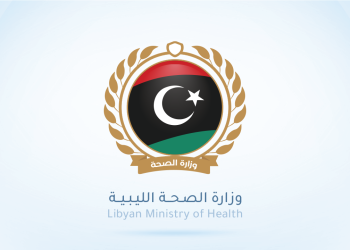By Libya Herald reporters.

Tripoli, 2 April 2016:
Following Faiez Serraj’s meeting with mayors from the Tripoli area during the say on Thursday . . .[restrict]and in the evening with prominent figures from central Tripoli, Suq Al-Juma and Gasr Ben Ghashir, local municipalities and national organisations continue to beat a path to the Presidency Council’s temporary headquarters at Tripoli naval base and express their support for it and the new Government of National Accord (GNA).
This evening, in a move unimaginable just a week ago, Serraj is expected to open the annual Tripoli International Fair.
Last night, he met the mayor and elders from the south-western oasis town of Obari at which he was briefed about the year-and-a-half conflict there and invited to visit it and neighbouring municipalities to assess their situations and needs. He also met separately with a number of mainly Tripoli area members of the House of Representatives.
Most of the support for the GNA is coming from the west and south of the country. In a significant development on Thursday, the mayors of Sabratha, Zultan, Rigdaleen, Al-Jmail, Zuwarah, Ajilat, Sorman, Zawia and West and South Zawia issued a joint statement backing the GNA. Yesterday evening, Tthere was a similar statement from military leaders in most of the same places although they added that the Serraj government had to sack Khalifa Hafter.
Yesterday in Sabratha itself, locals demonstrated in support of Serraj and the GNA. Rejecting any militia formations outside the control of the army and police, they also called for Libya’s displaced to be able to return home.
The turnaround is significant. Many of the western municipalities had previously been allied to the Tripoli regime of Khalifa Ghwell. In the case of Sabratha, its municipal and military councils were not only rigorously pro-Ghwell but were suspected of supporting to militant Islamists in the country until February’s US raid on facilities in the town being used by the so-called Islamic State (IS). The municipality consistently tried to hide the fact that IS was in the area, always publicly denying its presence.
It is not only municipalities that are switching allegiance. The Tripoli offices of the Libyan news agency LANA, previously supportive of the Ghwell regime, is now firmly in the Serraj camp, dutifully reporting its activities. LANA’s Beida bureau, hitherto loyal to the interim government of Abdullah Al-Thinni, is also showing signs of lining up behind Serraj. It still publishes reports on the interim government but increasingly mixes them with articles about Serraj and the Presidency Council. Yesterday it published a report of a meeting in Tripoli between the Presidency Council and the State Council and the need to put state institutions on a sound footing.
In the capital, there is a evident relief that Serraj has arrived and GNC/Ghwell regime collapsed, and all done without a shot being fired.
“This is the first time I feel happy since Libya Dawn took over,” one Tripoli taxi driver said last night, adding “at last we have a prime minister who is internationally recognised. Now, perhaps the embassies will come back.”
In the east, however, the reaction to the arrival of the Serraj team there is tension and uncertainty based on both hope and hostility There were reports today that in response to the developments in Tripoli, both HoR president Ageela Saleh and leading anti-Serraj HoR member Abubakr Bueira (from Benghazi) would give a press conference this evening demanding greater autonomy for the east, but this has not been confirmed.
“They don’t know what to do,” noted one Benghazi journalist, referring to eastern political leaders, including Hafter. “They didn’t expect Serraj to get to Tripoli so easily and stay there. They’re lost.” [/restrict]








